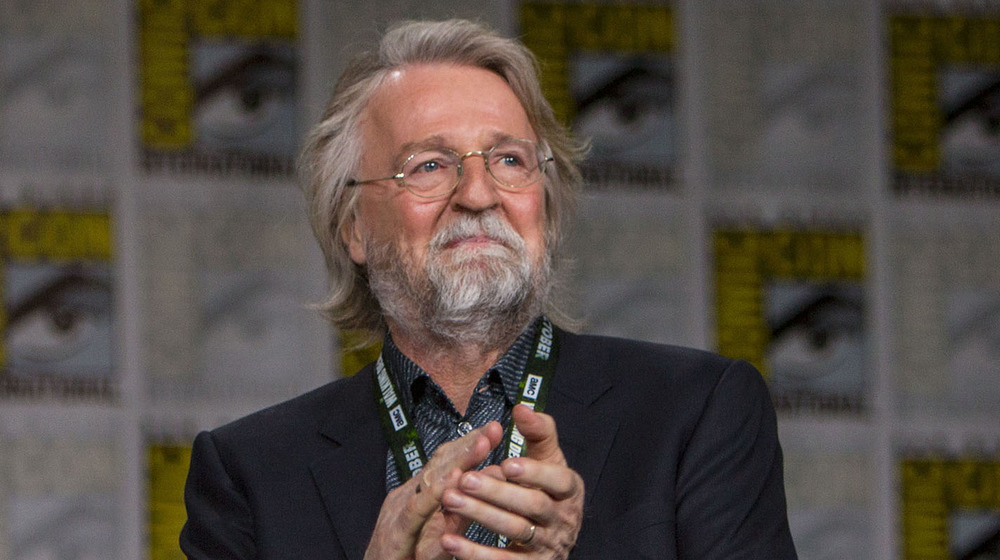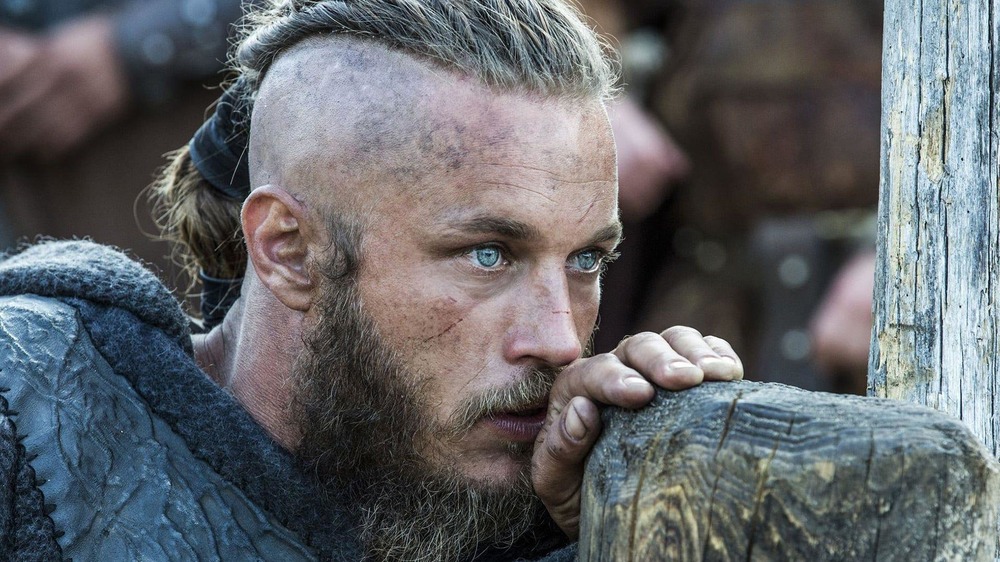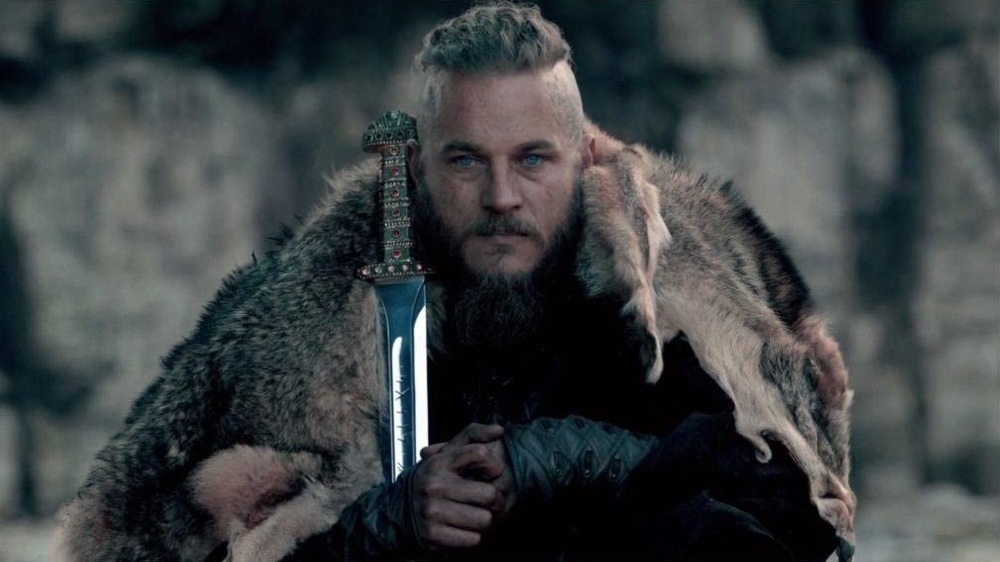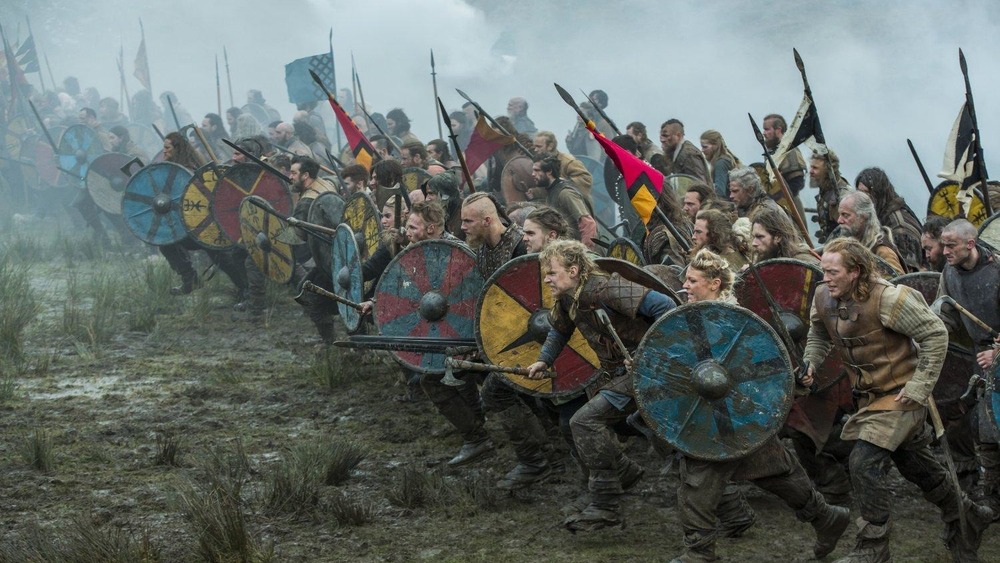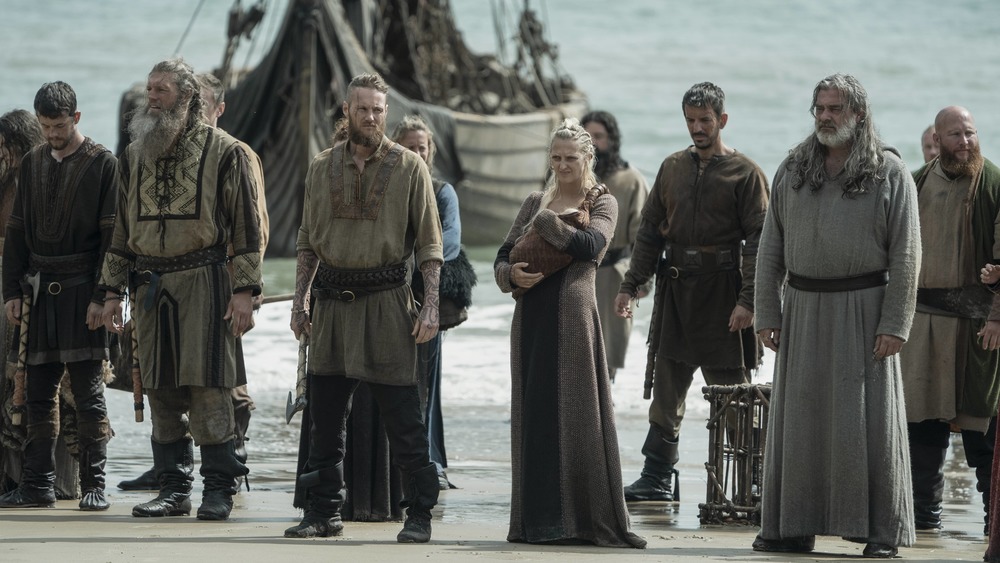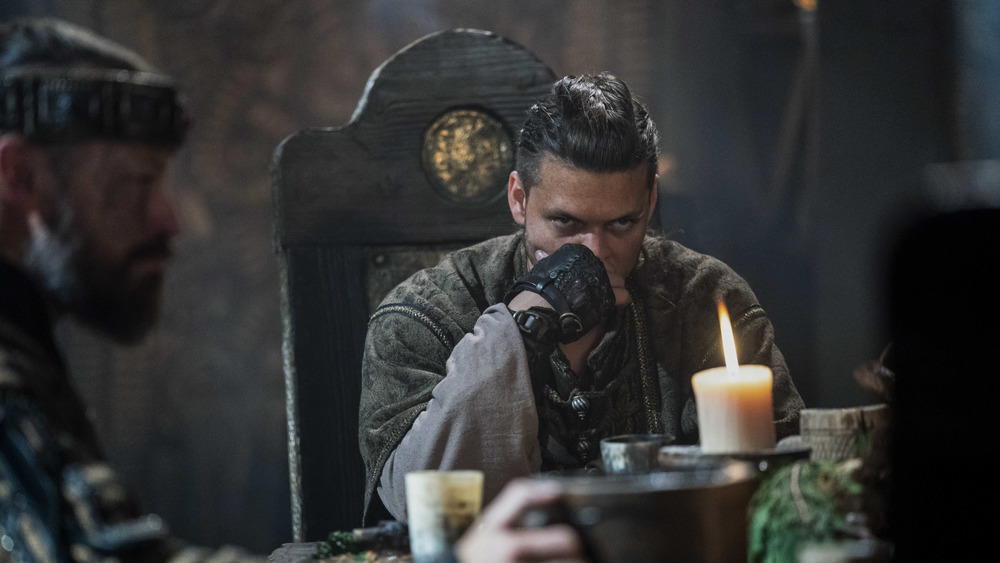Michael Hirst, Creator Of Vikings - Exclusive Interview
Vikings, the History Channel original epic saga of Ragnar Lothbrook and his descendants, has finally come to a close. Every single episode — a total of 89, for over 4000 minutes of television — was written by Michael Hirst. A veteran author of historical fiction, Hirst created The Tudors before going on to create, write, and executive produce Vikings for six seasons.
Looper spoke with Hirst before season 6B dropped on Amazon Prime. He told us about how he landed on Ragnar as the lead, shaping a narrative around historical facts, and how the show's exquisite fight scenes are choreographed. He also gave us some information on the final episodes and offered insight into the upcoming Netflix sequel series Vikings: Valhalla.
Choosing Ragnar
You created this really massive world full of complex characters. How did you land on Ragnar and the time period?
Well, yeah. I was asked to just create a Viking drama, so obviously I needed a lead character. I went in search of one. I was already fairly familiar with some aspects of the Viking world, because I'd done previous research when I was working on a movie about Alfred the Great. Anyway, I have an historical researcher, as well, who is a friend and a great resource for me. We went through several names. Maybe some of the more slightly famous Vikings that there are like Erik the Red or Harald Fairhair, but he said, "Why not... There's a guy called Ragnar Lothbrok." Now, it's not entirely clear that he was a historical [figure], a real character, but the likelihood is he was real. He does have his own saga, after all. Anyway, he's the first great Viking leader to emerge from the myth and legend, and that was perfect in many ways, because it was the beginning of the Viking age. It was the beginning of the explorations, going west out or Norway, out of Scandinavia, going to England, going to France, because they just discovered this way of building boats which were shallow drafted enough to cross seas, but also to go up rivers, and they found a way to navigate things in open ocean.
This was the perfect launchpad for the career of the Vikings as explorers and raiders, and here was this mythic figure who also had at least five sons, who did amazing things. One of the sons, of course, is called Ivar the Boneless. Who doesn't want to write a drama about Ivar the Boneless? It was a kind of no-brainer.
History and fiction
You mentioned that there's kind of a blur between how historical Rangar is and how fictional he is. How complicated was it for you to mix fact and fiction to create the show?
I mean, obviously as the dramatist you have to give shape. You have to give dramatic shape to stories, even if those stories are very close to the historical record. Another thing to bear in mind, of course, is this was called the dark ages, and it was called the dark ages for a very good reason. A lot of things were not written down at the time, so the Vikings were not literate anyway. Most of what we know about them comes from their enemies, from certain, from Christian monks, and what was written down about their paganism was told 100 years after the Viking period by a Scandinavian monk, but still. We have glimpses. We have quite a lot of information, so the battles between Vikings and Saxons or Vikings and Franks, we would have the record of that from the Frankish point of view or the English point of view. Everything I did, everything I wrote in Vikings is based on some historical fact or something that's possibly historical fact, but of course, I've shaped it.
We know that Ragnar married a shield-maiden called Lagertha. We know he had all these sons, because his sons are historically recorded and reported. I always like to put it like this, but it's not fantasy, I didn't just make it up out of my own head. It's all based on research. It all based on historical fact, and in fact, a group of academics, serious academics, some of them Scandinavian, some of them from Cambridge University, have written a book comparing the show and the scenes and storylines in the show to what they know to be the facts, and they are extremely complimentary about the show, and reckon that it's just about as authentic as you could be, given the circumstances.
Coordinating fight scenes
Some of the most impressive parts about Vikings are the battle scenes and the fight scenes. I don't think I've ever seen a show that goes this deep into the psychology and strategy of how fighting works. How do you coordinate all of that?
Well, we have a wonderful team of people who teach the actors, train the actors in the art of fighting. One of the guys, the leading guy in this group of professional fight trainers, actually has worked in ballet as well. It's not just the balance, it's the movement of the characters in fight sequences, so it's choreographed. Everything is choreographed, and what's also important, two things, I think, as I say. One is that for me, we use special effects sparingly. We obviously have to enhance some of the shots, but most of the fight scenes are for real. In other words, our actors like to fight. That's male and women characters, and did as much of the fighting themselves as they could. They rode horses and they rowed boats, and they did all the physical stuff. They really wanted to get muddy and bloody for the sake of the show, and I think that showed. I think, as opposed to other big shows like Game of Thrones or whatever, where most of their action sequences were shot against a green screen so they can enhance everything, and we didn't do that. We went initially for everything that was as real as it could be, and then later we enhanced it.
The other thing I'll say quickly as to fights and the battles is that it was very important for me to have the audience embedded in the battle and caring about the characters in the battle. These are not just huge nameless faceless visual effect armies moving from left to right and right to left across the screen. You are with some of your favorite characters in any battle scene, in any fight, and you care. As an audience, you care whether these characters live or die. That's a huge difference, I think.
Season 6B
To give you kind of a broad question, what can fans expect from the last few episodes?
Well, I mean, I'm very proud of them. I think that they conclude all the storylines that were up and running from the first 10 episodes of the last season. I think that they conclude the storylines satisfactorily and justifiably, because I didn't want to cheat people and I didn't want to cheat the actors or the audience. I think I had to make a great effort to tie off all these storylines properly and well, which I think I did, and I feel, because I've been so embedded, because I love these characters, I felt that so long as I was satisfied that I'd given them a good ending, that the audience would hopefully be satisfied too. What I would say, overall, is what they should expect is the unexpected. There are many surprises. There are many tragedies. There are obviously several important deaths, but whether characters live or die, I think their endings are satisfying.
Vikings: Valhalla
Can you tell us anything about the sequel series, Vikings: Valhalla?
Yes. Well, Netflix are making that. They've already shot the first season of the spinoff in the same studio, but it's actually 100 years after my saga, and it's being written by someone else, by Jeb Stuart. I mean, I wrote all 89 episodes of my saga, and that was as much as I could do. That was six seasons, 89 episodes, I said just about everything I wanted to say about Vikings, but Jeb Stuart, who I like and respect as a writer and a friend very much, he's taken over the writing duties, and as I say, they managed to shoot the first season, even in COVID[-afflicted] Ireland. They did an amazing job getting that done. It's very exciting to me that there's a fresh eye looking at the culture, and Jeb is in some ways, he's more of a thriller writer, so I suspect that it's going to be a different kind, perhaps a slightly different kind of show, but obviously, it's a great tribute to the show that it's been picked up by Netflix to carry it on. I'm really proud of that.
The final season of Vikings is streamable on Amazon Prime.
